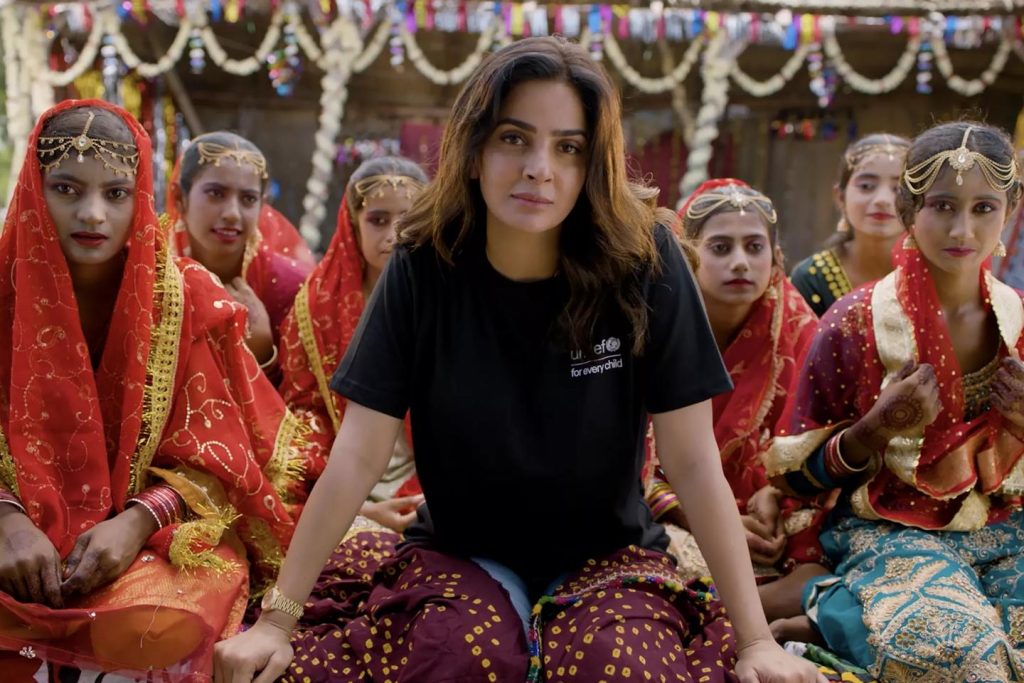ISLAMABAD, 28 May 2025 — UNICEF has launched a compelling video campaign featuring its National Ambassador for Child Rights, Saba Qamar, to raise awareness about ending child marriage in Pakistan. The campaign urges communities to stand against this harmful tradition and highlights UNICEF’s dedication to safeguarding children’s rights and empowering girls nationwide.
The Impact of Child Marriage on Girls’ Futures
In the video, Saba Qamar stresses the devastating effects of child marriage on young girls’ futures and calls for collective action to protect children’s rights. “No child in Pakistan should be forced into marriage or a life they did not choose,” she states. Sharing her firsthand experience in Sujawal, Sindh, Qamar recalls meeting brave young activists like 14-year-old Anam Nazir, who successfully prevented three child marriages in her community. “I proudly support this campaign for all the girls and boys suffering in silence due to child marriage.”
Pakistan ranks sixth globally for the highest number of child brides, with approximately 19 million girls married before 18. Nearly half of these girls face pregnancy before adulthood, risking their health and that of their babies. Only 13% of married girls complete secondary school compared to 44% of their unmarried peers, limiting their prospects and independence.
Abdullah Fadil, UNICEF Representative in Pakistan, emphasizes that child marriage stems from poverty and deeply rooted gender norms. “We must reform laws, enforce them, and invest in adolescent girls’ rights, health, and potential. Pakistan cannot prosper if half its population is sidelined.”
UNICEF applauds Islamabad Capital Territory’s recent move to raise the legal marriage age to 18, joining Sindh province. The campaign urges all provinces to adopt similar laws and build on this momentum.
The initiative is part of UNICEF’s broader collaboration with UNFPA, UN Women, and government partners to:
- Raise the legal marriage age nationwide to 18.
- Engage communities through dialogue with parents, caregivers, and religious leaders.
- Promote youth activism and girl-led initiatives.
- Support communication campaigns like BOLO (Speak Up).
“Ms. Qamar is a passionate advocate for children,” says Fadil. “Together, we aim to create a future where every child, especially girls, can grow, learn, and thrive.”
